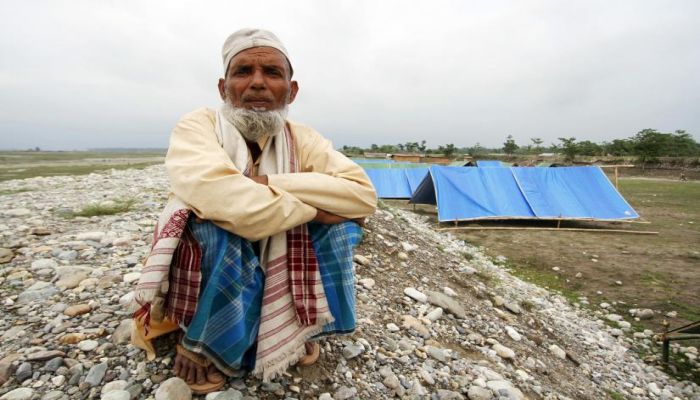
Desk Report
Publish: 07 Feb 2020, 03:09 pm

Assam has a long-simmering anti-immigrant movement, and its 2019 land policy, aimed at overhauling a three-decade-old land rule, aims to assign land to landless indigenous people-but does not define who is indigenous.
An indigenous person, since we introduce the legislation, can only sell his or her property to an indigenous person, not to anyone else. That means the protection of our land for our people, health minister Himanta Biswa Sarma told reporters at a briefing.
As part of a drive to identify and detain illegal immigrants, the new land law comes as nearly 1.9 million people, mainly Muslims, were left off registering citizens in Assam last year.
In December, protests erupted across India against a new law on citizenship, with demonstrators in Assam fearing that it would turn thousands of illegal migrants from neighboring Muslim-majority Bangladesh into legal citizens.
Prime Minister Narendra Modi's ruling Bharatiya Janata Party (BJP), which also governs Assam, says there are hundreds of thousands of illegal immigrants in Assam from Bangladesh.
To order to be included in the registry of citizenship, people had to furnish proof of residence in India going back decades, until March 24, 1971, the year in which hundreds of thousands of people left Bangladesh as it separated from Pakistan.
Minister Sarma said a committee will define the term indigenous, and consider different cut-off dates for arrival in the state to determine who belonged there and was entitled to receive land from the government.
Any definition would run counter to India's indigenous classification, which applies to its 104 million tribal population-also known as Adivasis or original inhabitants-that makes up almost 10 percent of the country's 1.3 billion citizens.
Nationally, indigenous people are entitled to special rights and protections, including over land and resources.
Assam's new land policy is to set to further marginalize millions of poor tribal people and ethnic minorities, said Walter Fernandes, a senior fellow at the North Eastern Social Research Centre, a think-tank in Guwahati city in Assam.
In a country where birth certificates, marriage certificates and death certificates are not common, how do you produce those records on your own, let alone your parents, he told the Thomson Reuters Foundation.
The land policy, with its restrictive definition of indigenous people that applies cut-off dates and requires supporting documentation, will mark a paradigm shift in Assam, said Aman Wadud, a human rights lawyer
It is a very discriminatory policy, as Bengali Muslims and Hindus will not be regarded as indigenous, said Wadud, who represents several residents left off the citizenship list.
Even those who have lived here for a long time won't be considered indigenous, including women who generally have few documents to prove residency.
Yet resentment against migrants, seen as taking away jobs and land, is growing and may spark more policies across India that limit land ownership to select groups, Fernandes said.
Source: Reuters
Subscribe Shampratik Deshkal Youtube Channel
© 2024 Shampratik Deshkal All Rights Reserved. Design & Developed By Root Soft Bangladesh